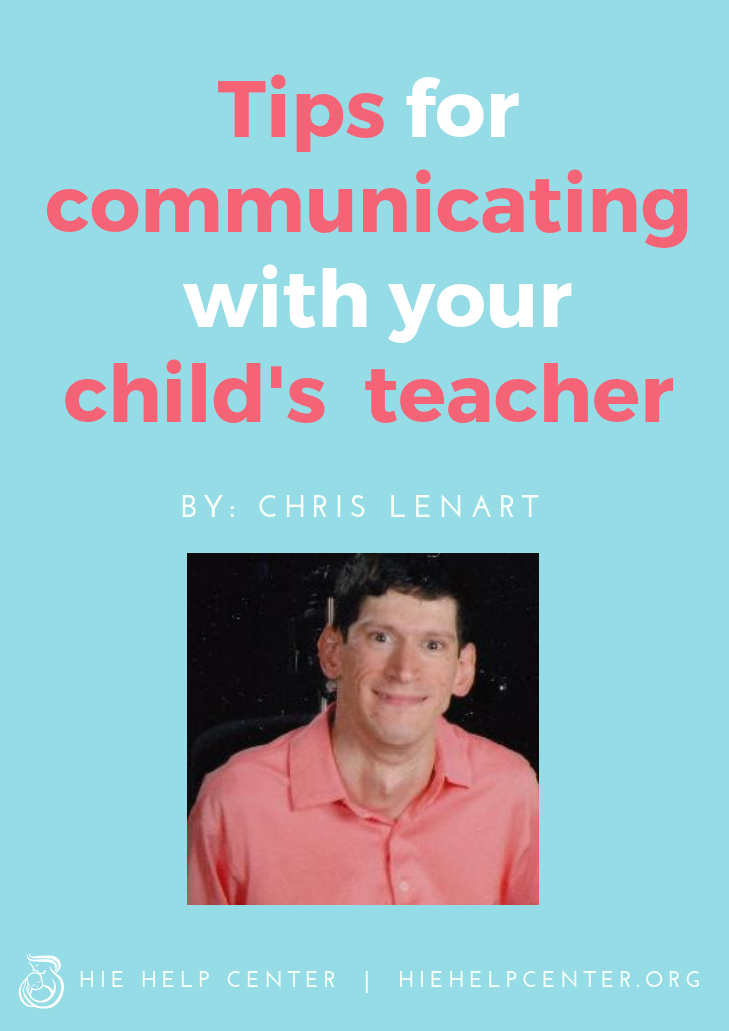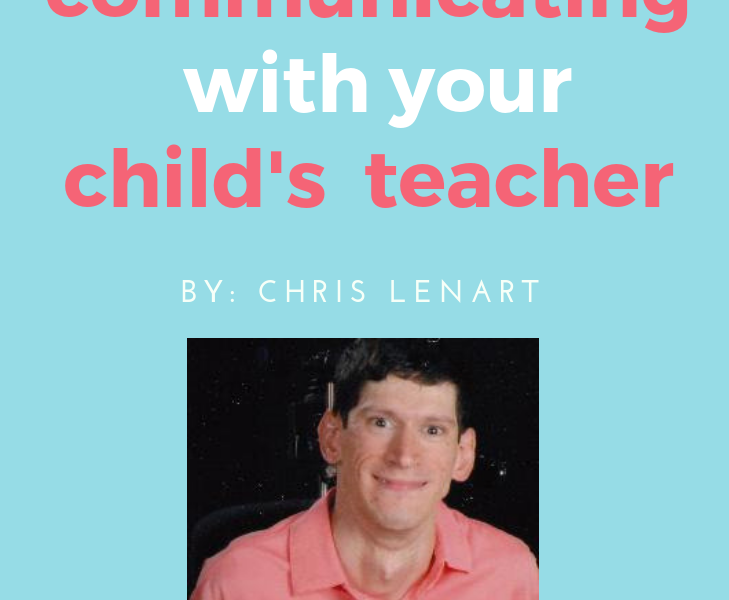Establish the relationship early on
During the first month or two of school, parents and teachers are getting to know each other. Because your child will have the teacher for the entire school year, it’s helpful to get to know the teacher early on so you can continue communicating and working together throughout the school year.
You know your child best
Parents often think that the teacher knows more than them. Teachers specialize in education and subject matter. You, however, know your child’s personality, background, and personal needs best. You can aid the teacher by communicating your child’s needs. Teachers have to remember that working with a child with cerebral palsy is difficult, especially when the child is nonverbal. I know this feeling too well because I am nonverbal myself, and every year it was frustrating because the teacher did not understand me. The only way to solve this is to get a communication system figured out. This sounds easy to do, but if the child is really young, it is not easy to do.
Find the right communication strategies for your child
The first communication system is the hardest to figure out because you have so many unknowns. You have to figure out how your child will use it. There are so many ways to communicate using a system:
- Kids can use their hand as a pointer
- Kids can use their head as a pointer (by nodding or with a head pointing device)
- Eye gazing techniques or technology
- A button with a scan device
- More!
With technology expanding, the possibilities are endless. They say that the brain waves are the future. Personally, although I love the idea of it, I am literally scared if I have a bad thought in my head.
There are so many systems on the market that your child could try. I am not going to tell you what system to try first, but in my mind, the iPad is the cheapest way to go and you might have an iPad in your home. If you want some help with the iPad, just contact me (clenart@comcast.net) and I will help you.
Communicating with teachers about your child’s IEP
Some teachers read the IEP from the previous year and use it for the current school year. This might be good if the last year was good, but most of what I hear these days is that the parents are not pleased how the previous year went so this year might be difficult too. So what do you do? Well, that is a hard question to answer. You have to be forceful but willing to work with the teacher. My mom was hard on the teachers but could work on differences to get to common ground so they could work together.
Some parents are fortunate to see eye-to-eye with their child’s teacher. If you have this experience, you should work with the teacher the entire year and use it for your benefit. When I was in fourth grade, my mom and the teacher just clicked. The program was new and the teacher saw that I was struggling with reading so she suggested that my mom should take me for reading tutoring. She did and that was the best advice ever. You have to do the same for your child because it might really help your child to learn the best.
What to do when you disagree with your child’s teacher
On the other hand, you might be fighting with the teacher on regular basis. This might hurt your child for the entire school year; that is not what you want, so what should you do? Well, first of all, I would set up a meeting with everyone involved. If that doesn’t help, I would talk to an advocate or lawyer about what is going on. Your child’s education is very important. Let’s just say that your child will never go to college. That is all right, but how about getting a job?
Focusing on the future
I have been in the corporate world for many years and unemployed for almost the last ten years. By having a job, it gave me a sense of purpose in my life. I believe that every child with a disability should experience it. I know a guy with cerebral palsy who is a greeter at Wal-Mart for many years and he loves it. For me, that would be the most boring job on the planet. All I am trying to say is that your child deserves everything in your power to give them a great life.
I have an awesome life because my parents did not give up on me. Their willingness to fight for me has taught me to fight for what I want in life. When your child gets to my age, they will keep fighting for themselves.
To learn more about author Chris Lenart and his work, visit his website.



Leave a Reply
You must be logged in to post a comment.